There have been hundreds of posts made across Reddit and even more comments confidently stating that the vaccinated are better protected from strokes than the unvaccinated.
Let's go through a few of the claims which have been made, see how these claims have evolved over time and then review the real data.
A Few Problems With The Claims
- Incidence of heart attacks and strokes was lower after vaccination than before or without vaccination.
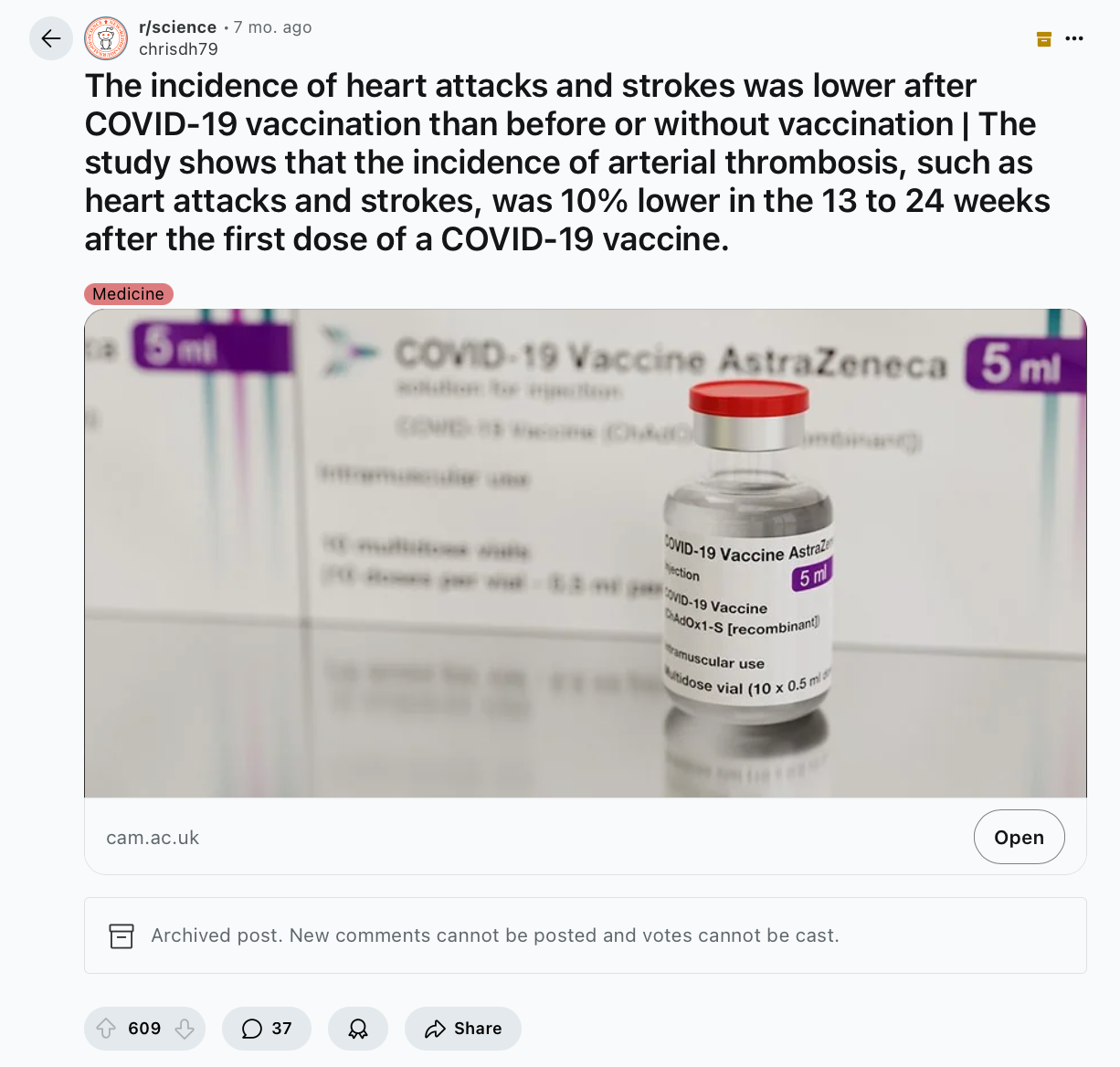
This claim states that heart attacks and strokes were 10% lower in the 13 to 24 weeks after the first dose of a COVID-19 vaccine.
This point conveniently ignores all data from the first 12 weeks following vaccination, and any data from 24 weeks after vaccination. This very specific window conveniently allows the data to be misrepresented as the vaccinated being better protected, when in reality, there is a significant increased risk of stroke in the 3 weeks following vaccination.
- Unvaccinated more likely to have stroke after COVID, being fully vaccinated reduces risk by 41%.
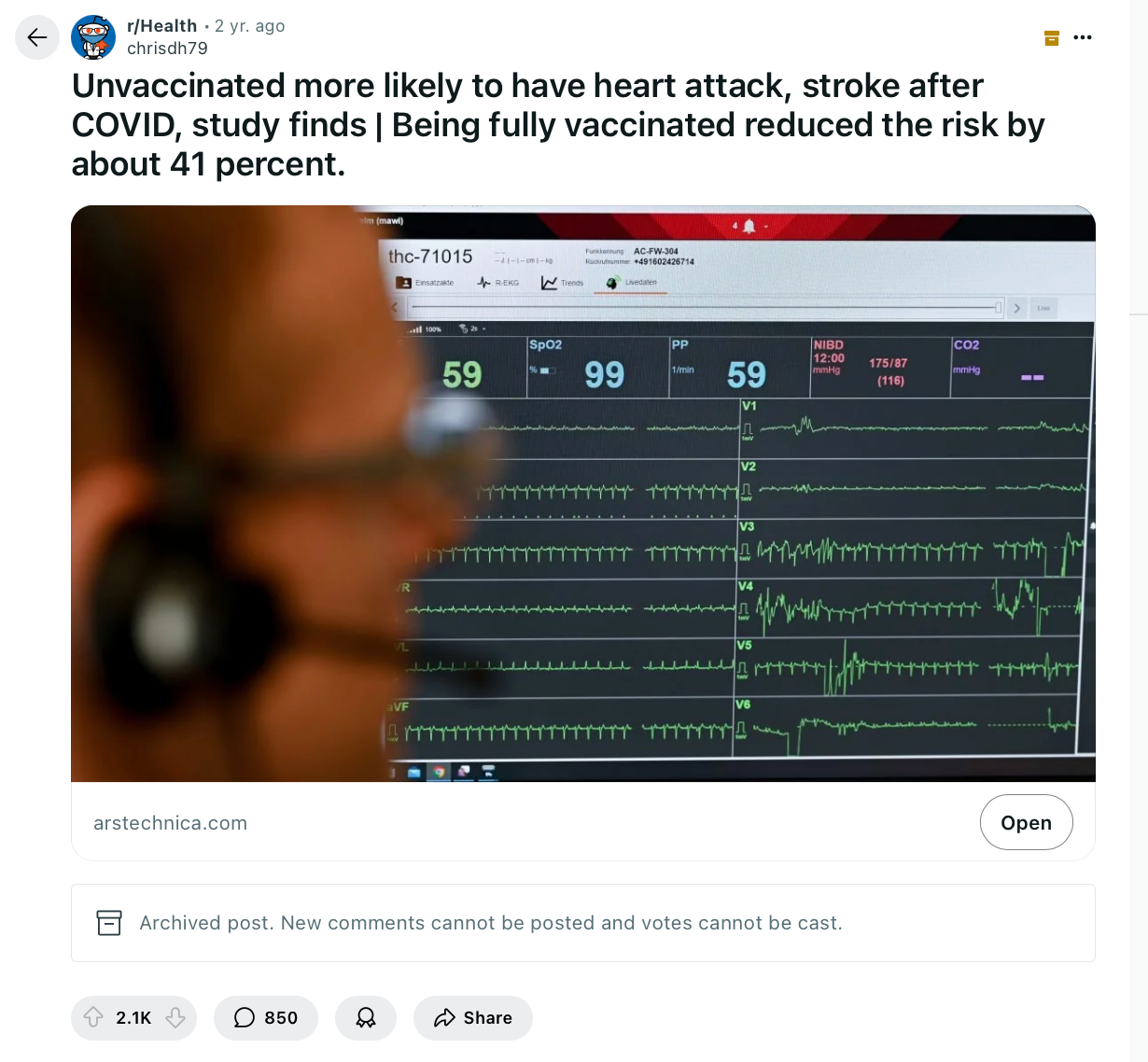
This study is chock full of red flags and it totally manipulates the data to fit a narrative, rather than presenting the truth.
A 41% reduction in risk might sound significant, but it's incredibly misleading without considering the absolute risk. The study claims a 41% relative risk reduction, but the absolute risk difference is only 0.2 percentage points (0.7% to 0.5%)
It states that MACE (Major Adverse Cardiovascular Events) occurred in:
- Unvaccinated: 12,733 out of 1,716,451 (0.7% or 7 per 1,000 people).
- Fully Vaccinated: 1,055 out of 195,136 (0.5% or 5 per 1,000 people).
But this study completely ignores data from the first 14 days post-vaccination, when cardiovascular events are most likely to occur – artificially lowering the MACE risk among the vaccinated.
It also only counts vaccinated individuals who survived long enough after their doses to be included in the follow-up period – it doesn't include individuals which died before the follow up period.
This means that in all likelihood, had that data been included the number of MACE in the vaccinated would have been significantly higher than in the unvaccinated.
A true unbiased study would wouldn't group the partially vaccinated individuals separately from fully vaccinated individuals, and would only compare the vaccinated to the individuals who received no vaccine.
It would also compare against the general population but only those who tested positive.
A few more criticisms on this study:
- The study mentions that COVID-19 itself is linked to cardiovascular events – but it provides no data proving that the cardiovascular events occurred only in unvaccinated individuals who had COVID.
- It fails to analyze the well-documented increased risk of myocarditis, pericarditis, and blood clotting disorders following vaccination.
- Finally, the authors are entirely funded by the pharmaceutical industry and government grants–their incentive to publish this study was not to provide unbiased truth to the public, it was published to support a narrative which benefits them financially:
Dr Chan has consultancy agreements with Vifor Pharma, Inc; has received research funding from the National Institutes of Health. Dr Nadkarni has consultancy agreements with AstraZeneca, BioVie, GLG Consulting, Pensieve Health, Reata, Renalytix, Siemens, and Variant Bio; has received research funding from Goldfinch Bio and Renalytix; has received honoraria from AstraZeneca, BioVie, Lexicon, and Reata; has patents or royalties with Renalytix; owns equity and stock options in Pensieve Health as a cofounder and Renalytix; has received financial compensation as a scientific board member and advisor to Renalytix.
Not surprisingly, multiple studies came to these EXACT numbers (41% risk reduction) using the exact same tactics as the study above:
https://www.sciencedirect.com/science/article/pii/S073510972207601X?via%3Dihub
https://jamanetwork.com/journals/jama/fullarticle/2794753
https://pmc.ncbi.nlm.nih.gov/articles/pmid/35867050/
- No evidence of significant stroke risk in days following vaccination
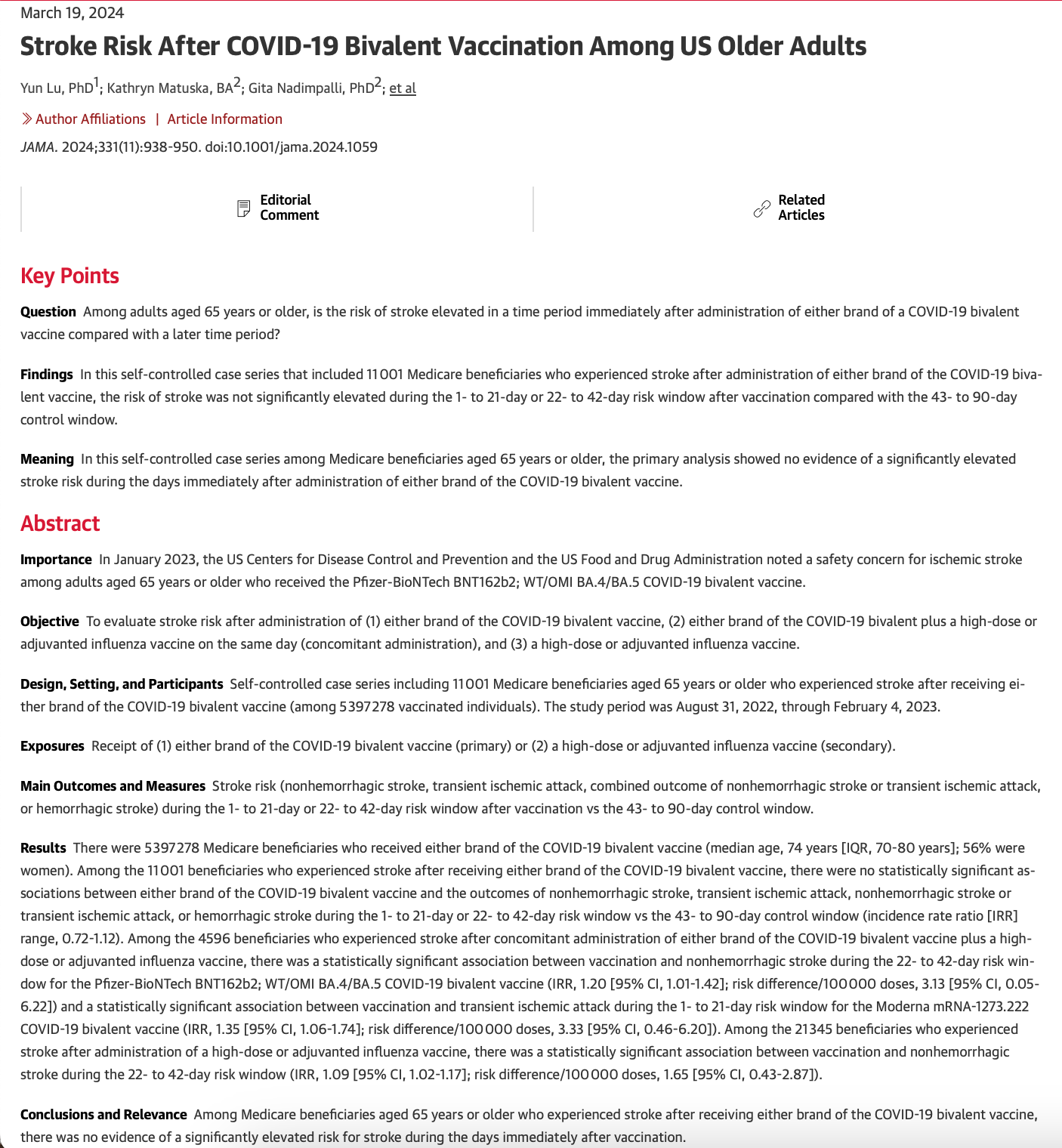
This study only analyzes vaccinated individuals who experienced a stroke. It does not compare stroke risk between vaccinated and unvaccinated individuals, which is crucial to determine if vaccination increases risk. Without a proper control group, the true baseline risk of stroke cannot be determined.
Like the studies above, this one requires individuals to survive long enough to reach the control period (43-90 days post-vaccination). So any individuals who experienced a stroke before day 43 and died were entirely excluded from the control window, making the later time frame appear safer.
The timeframe used in the study is also cherry-picked, and it assumes that vaccine-related stroke risk disappears after 42 days, which is not necessarily true.
MOST IMPORTANTLY (because this is something you will find in almost every study which concludes the vaccine is safe and necessary), despite manipulating the timeframe and individuals included, the still data clearly shows a statistically significant increase in stroke risk (1.36x increase for Pfizer, 1.22x increase for Moderna) yet frames it as insignificant.
It does acknowledge that CDC and FDA raised safety concerns in early 2023 regarding stroke risk in seniors following Pfizer’s bivalent booster – yet, instead of investigating this properly, the study tries to dismiss the safety signal.
- Exposure To The COVID-19 Virus Can Trigger Stroke At Anytime
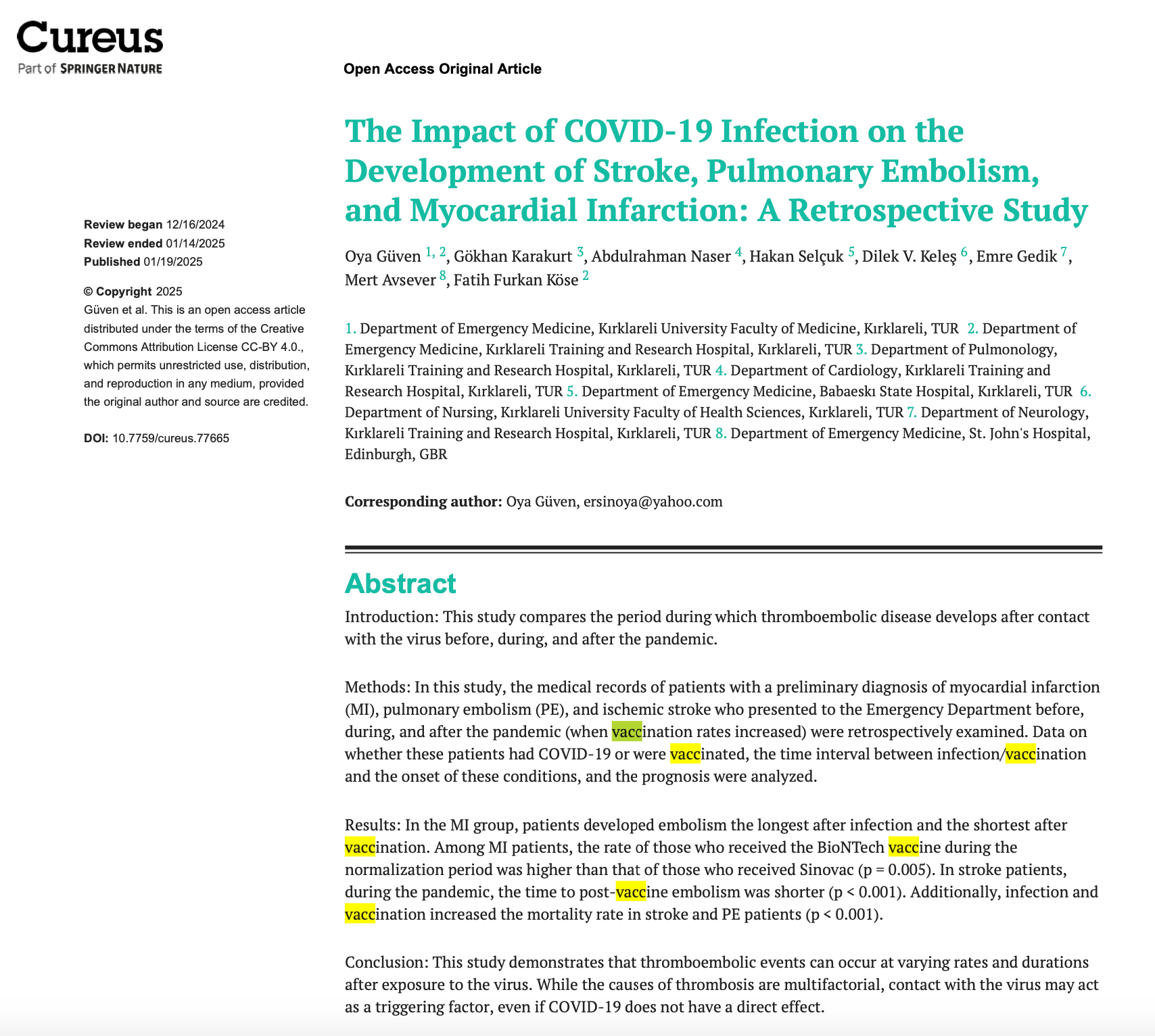
"This study demonstrates that thromboembolic events can occur at varying rates and durations after exposure to the virus. While the causes of thrombosis are multifactorial, contact with the virus may act as a triggering factor, even if COVID-19 does not have a direct effect."
I'll keep this one short and simple and just say this study does not once provide any data to compare vaccinated to unvaccinated. It doesn't not even include the word unvaccinated. Like hundreds of other studies, it only compares vaccinated to those who had been infected with Covid – and does not care to compare between vaccinated (with and without previous infection) and unvaccinated (with and without previous infection).
So, What Does The Data Really Tell Us?
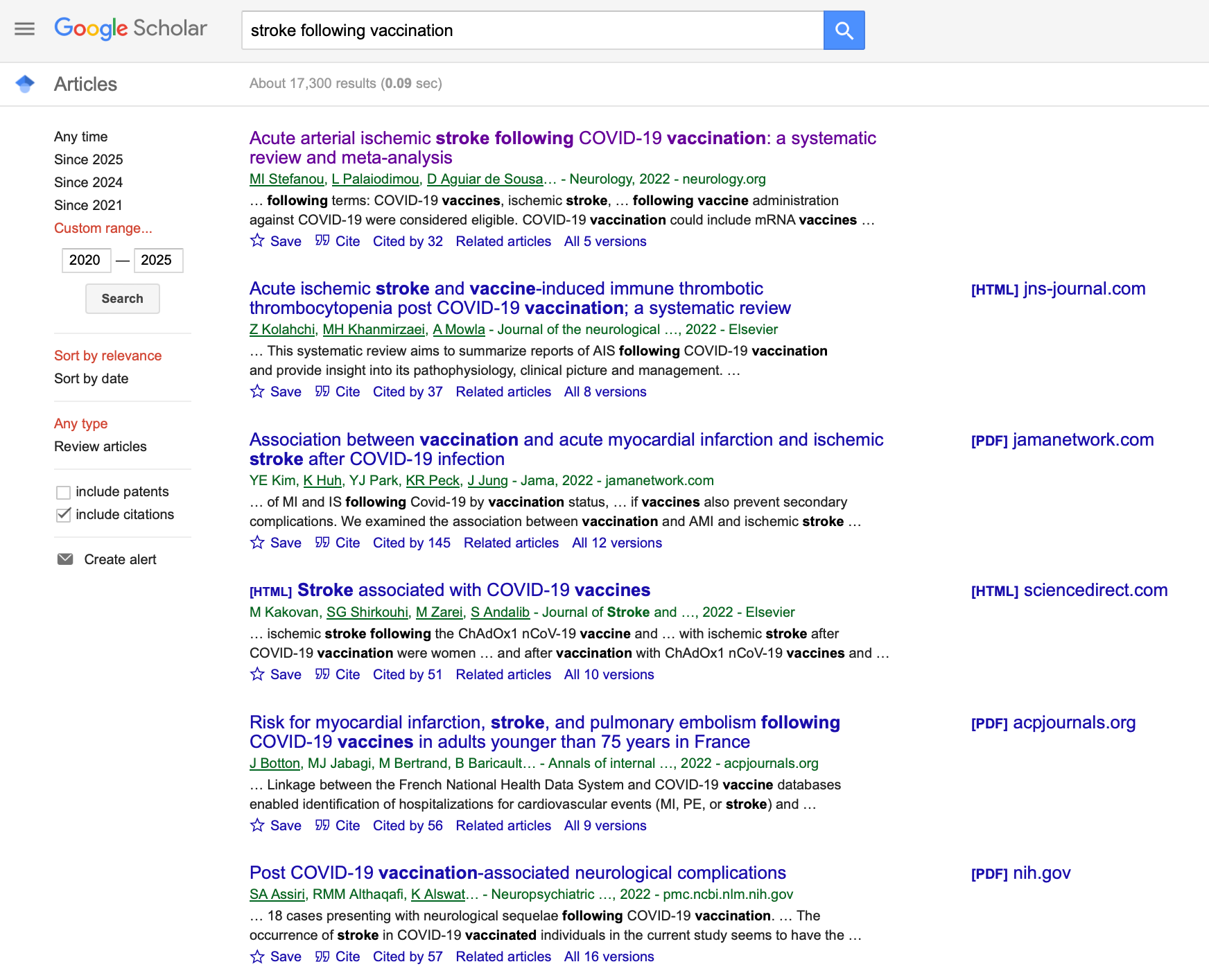
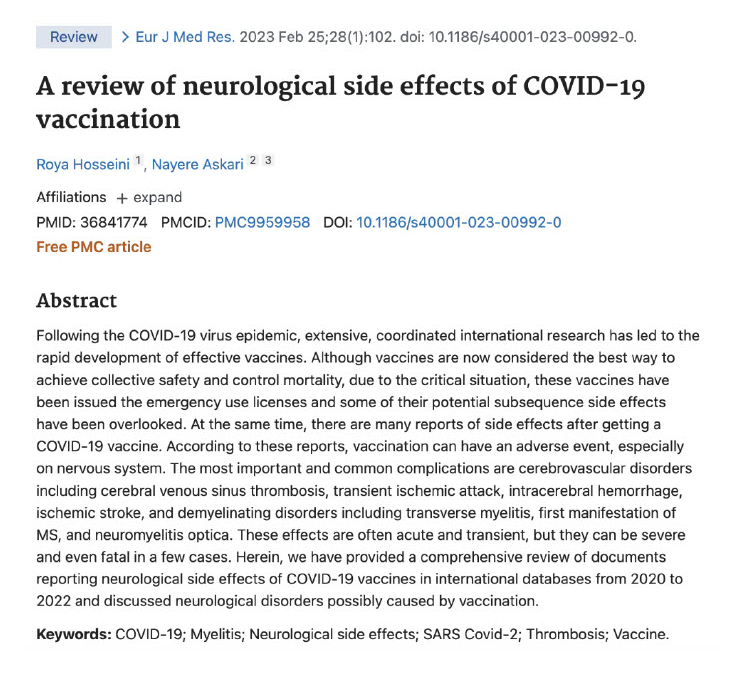
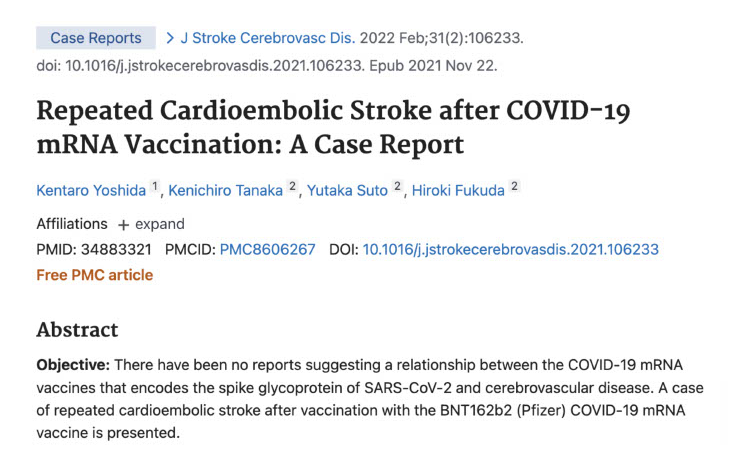
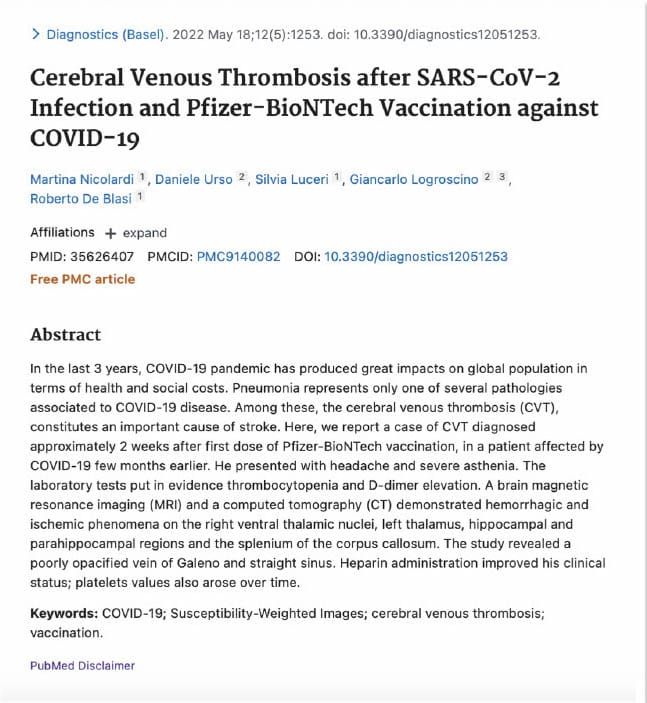
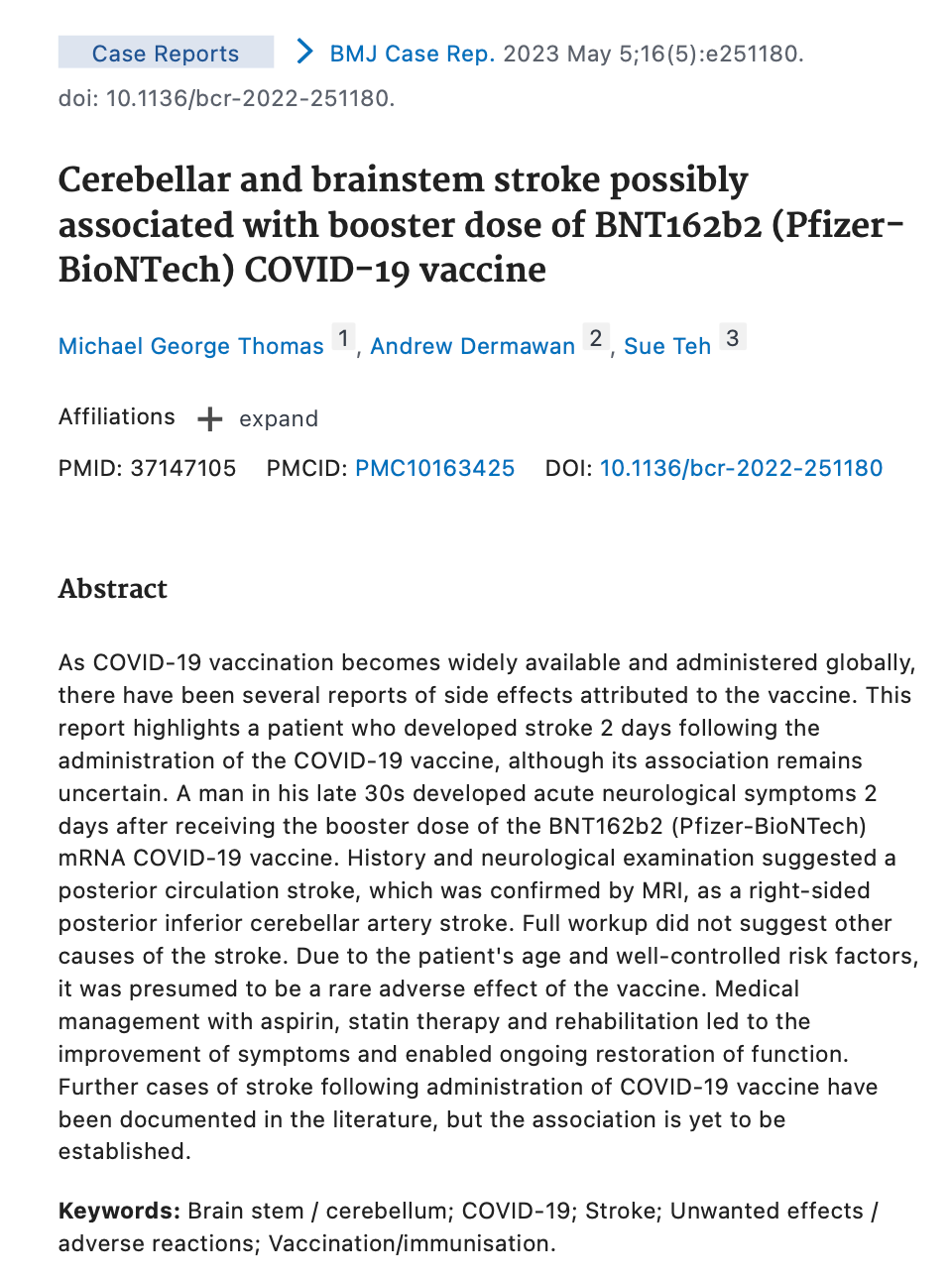
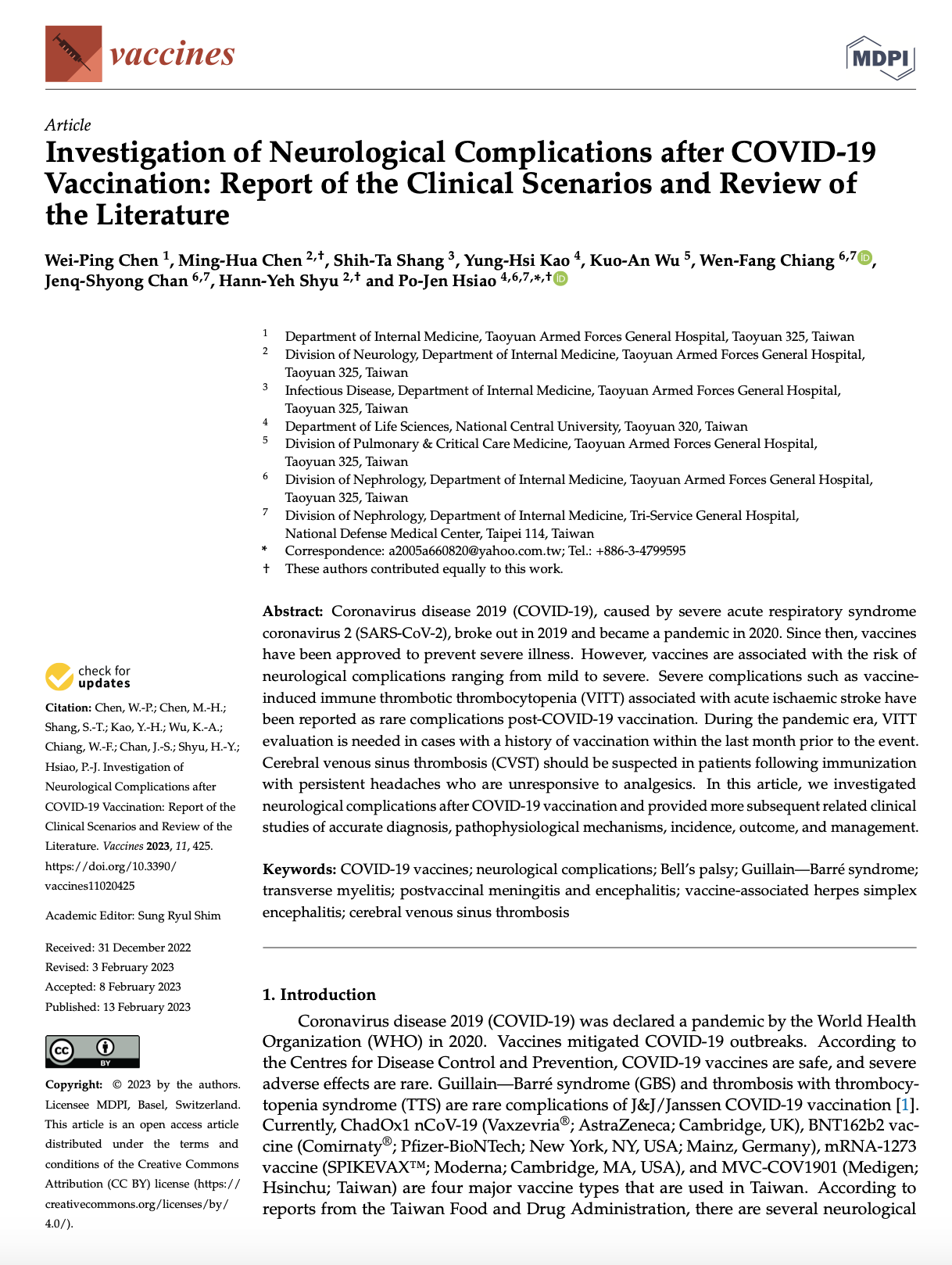
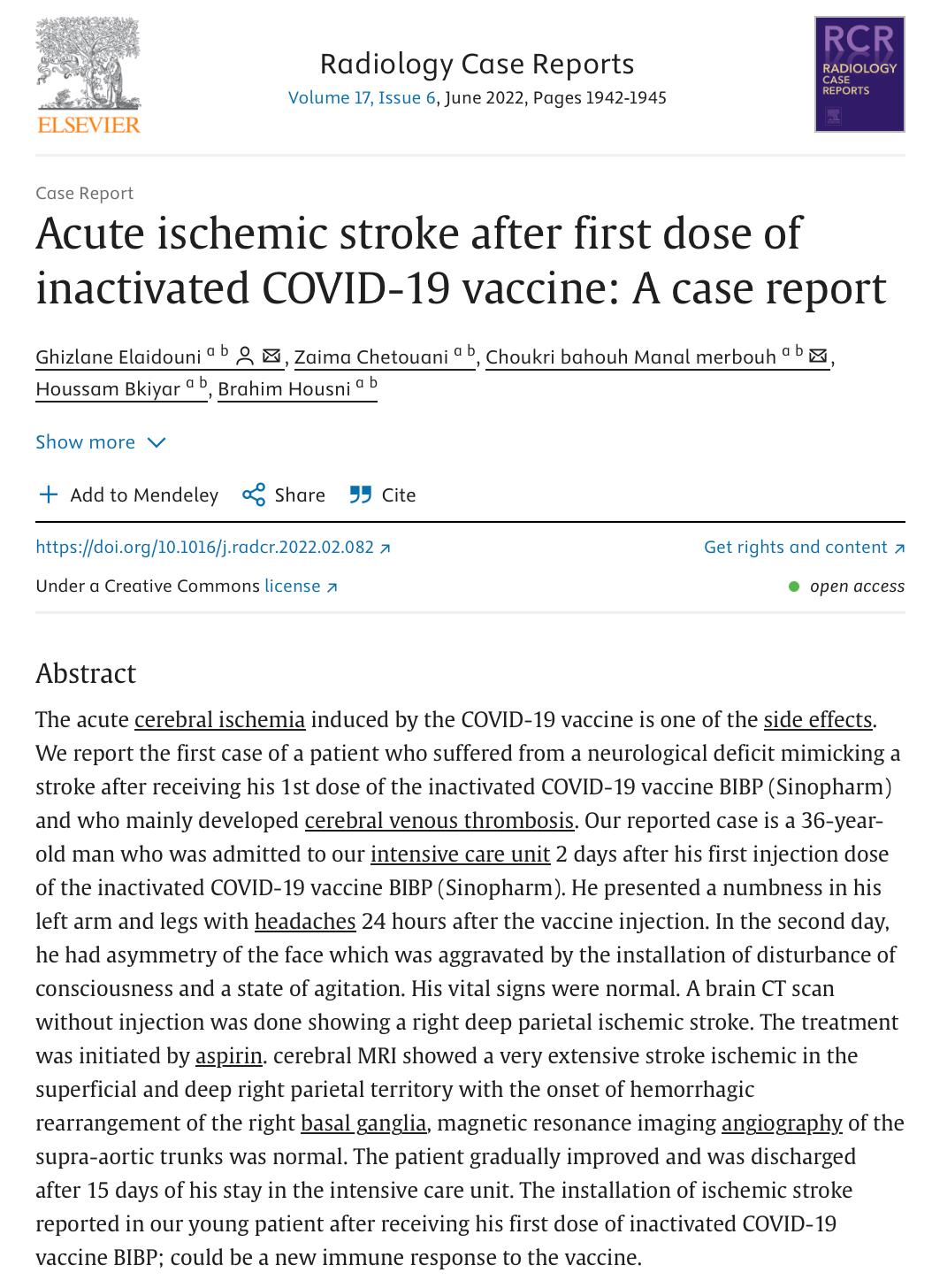
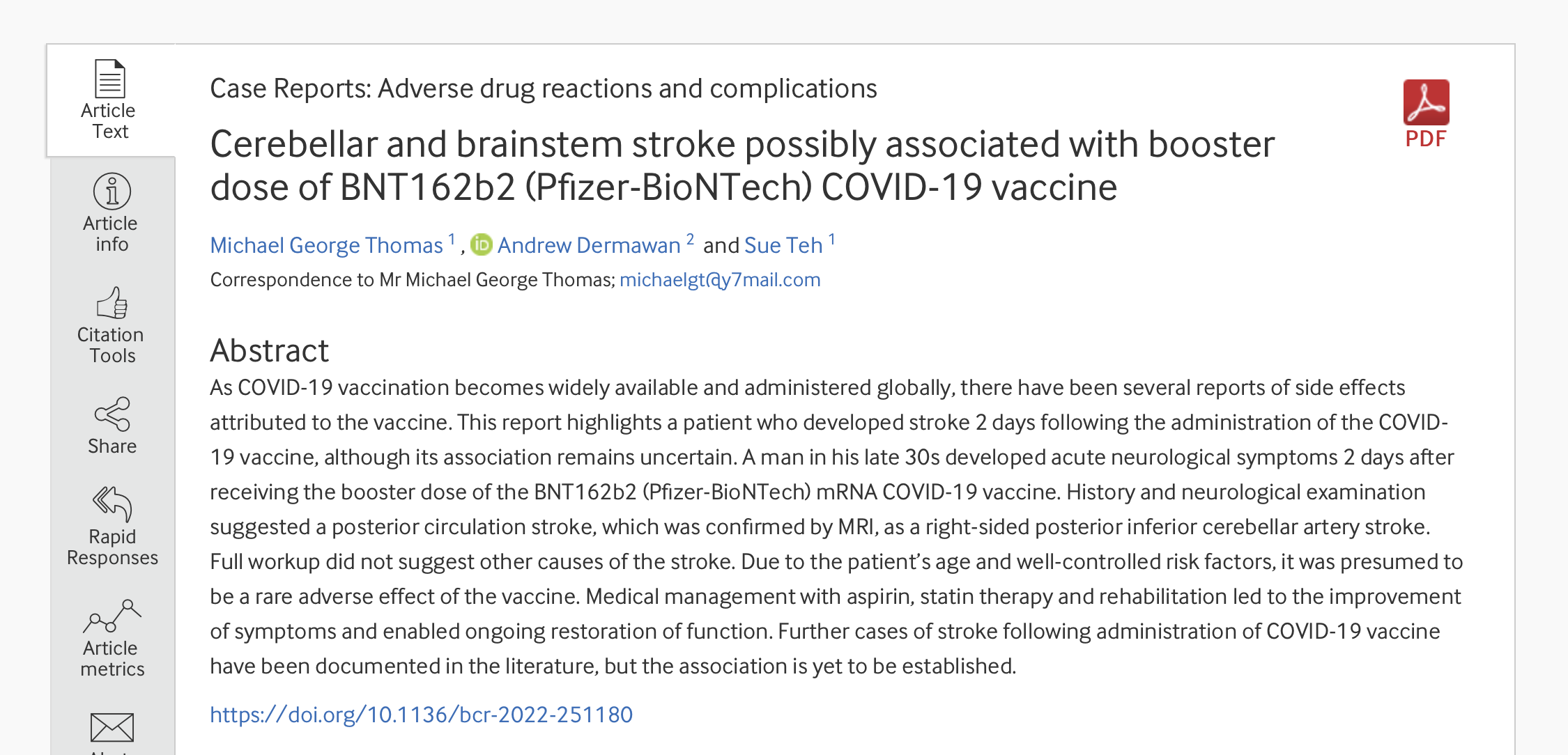
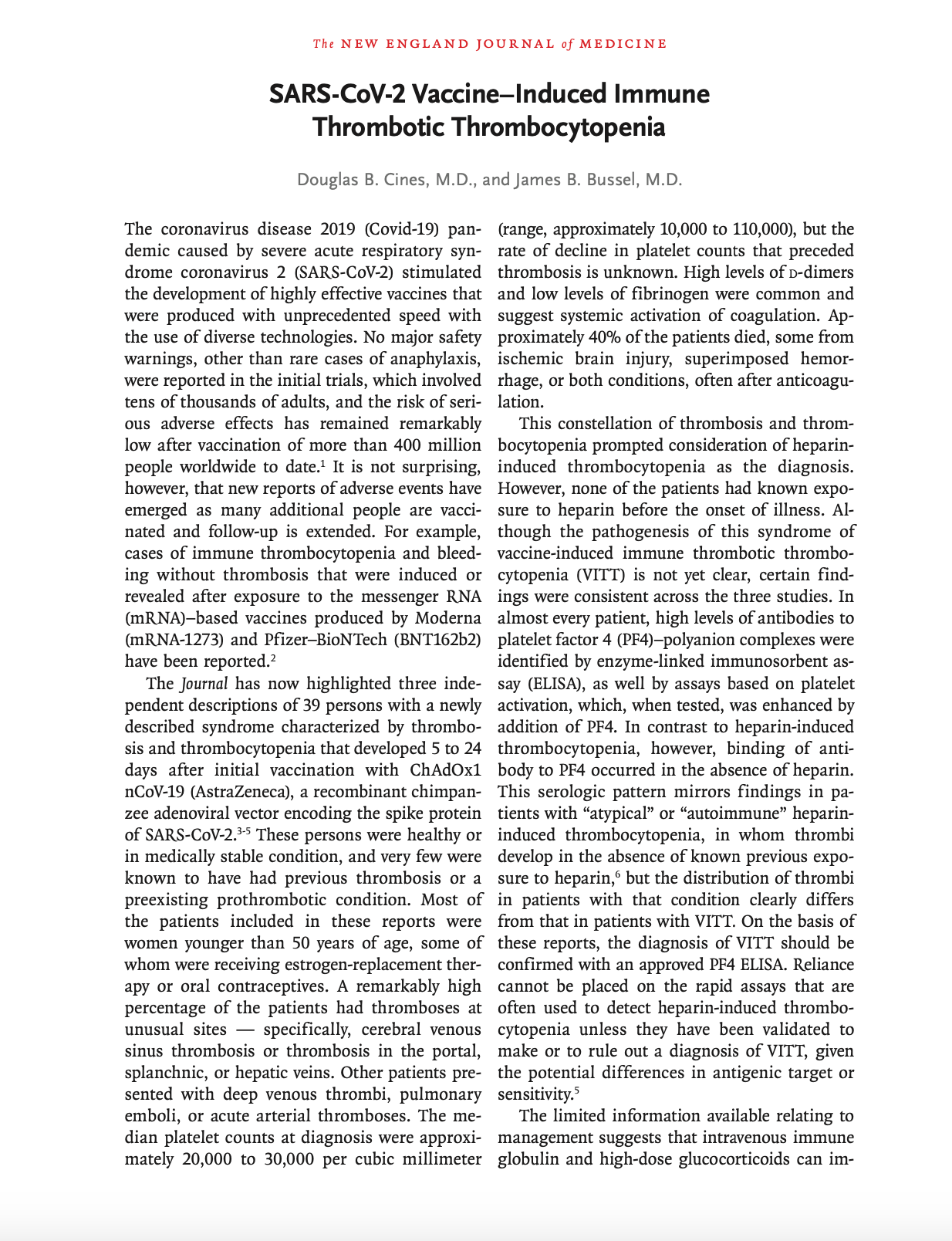
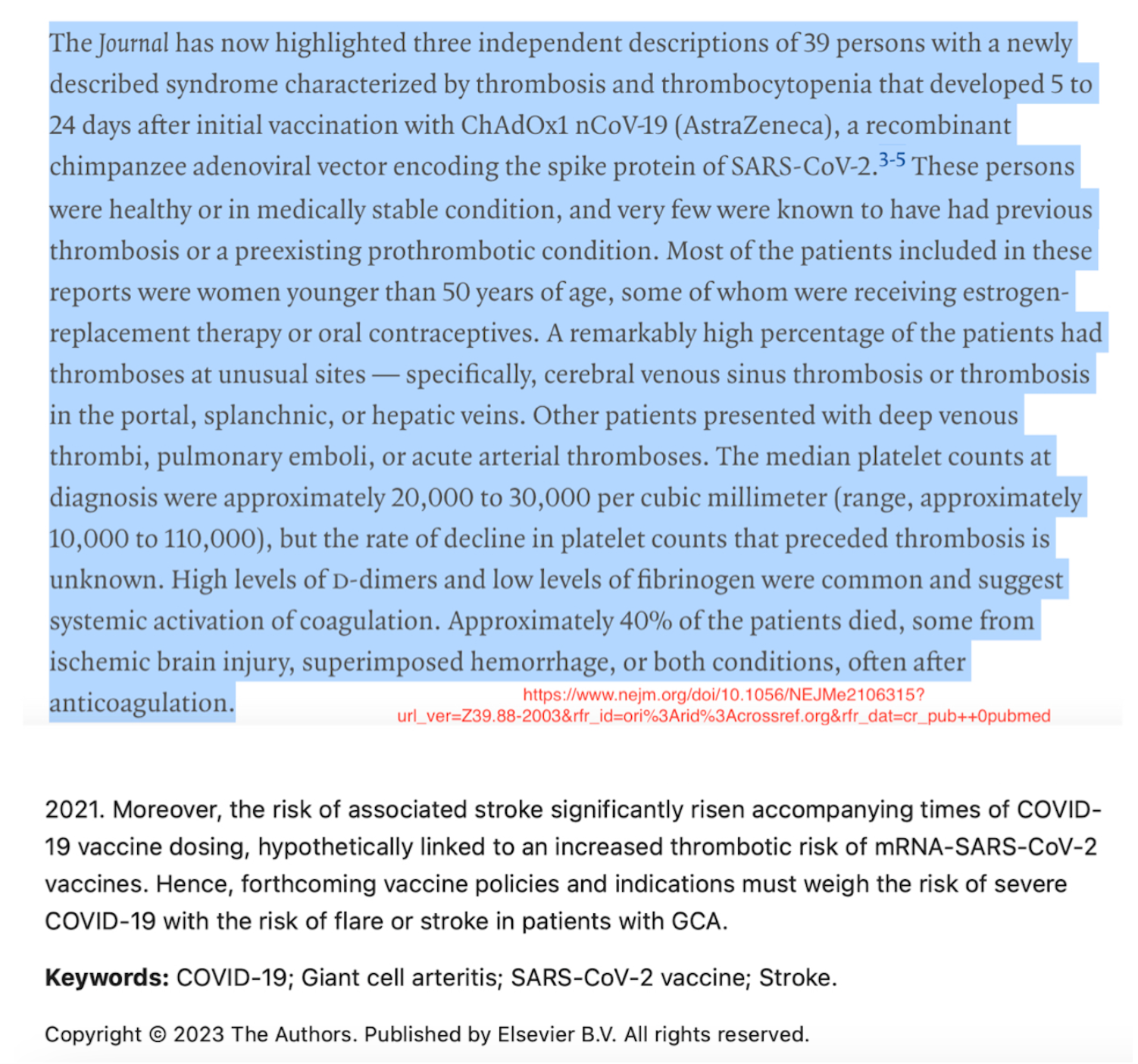
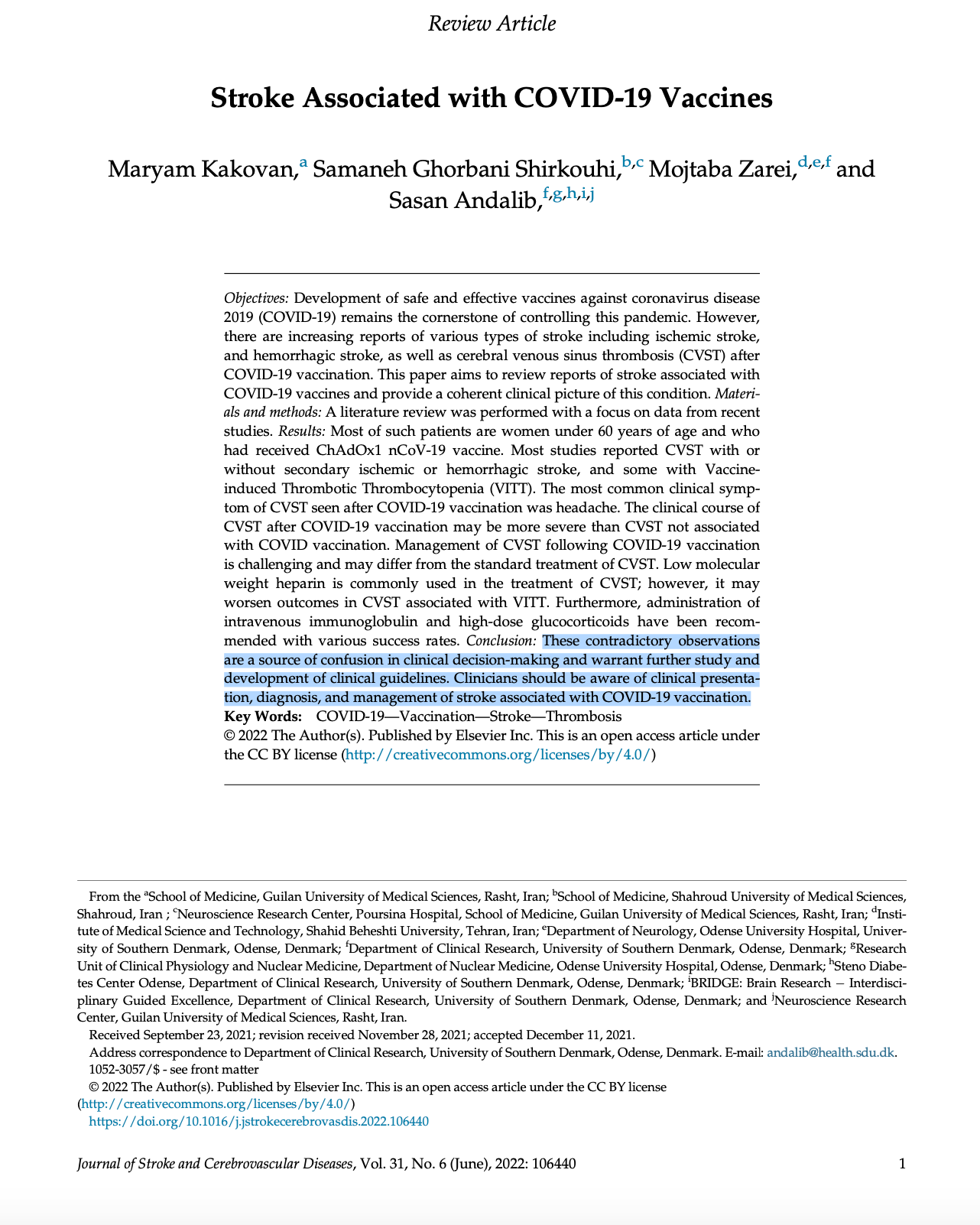
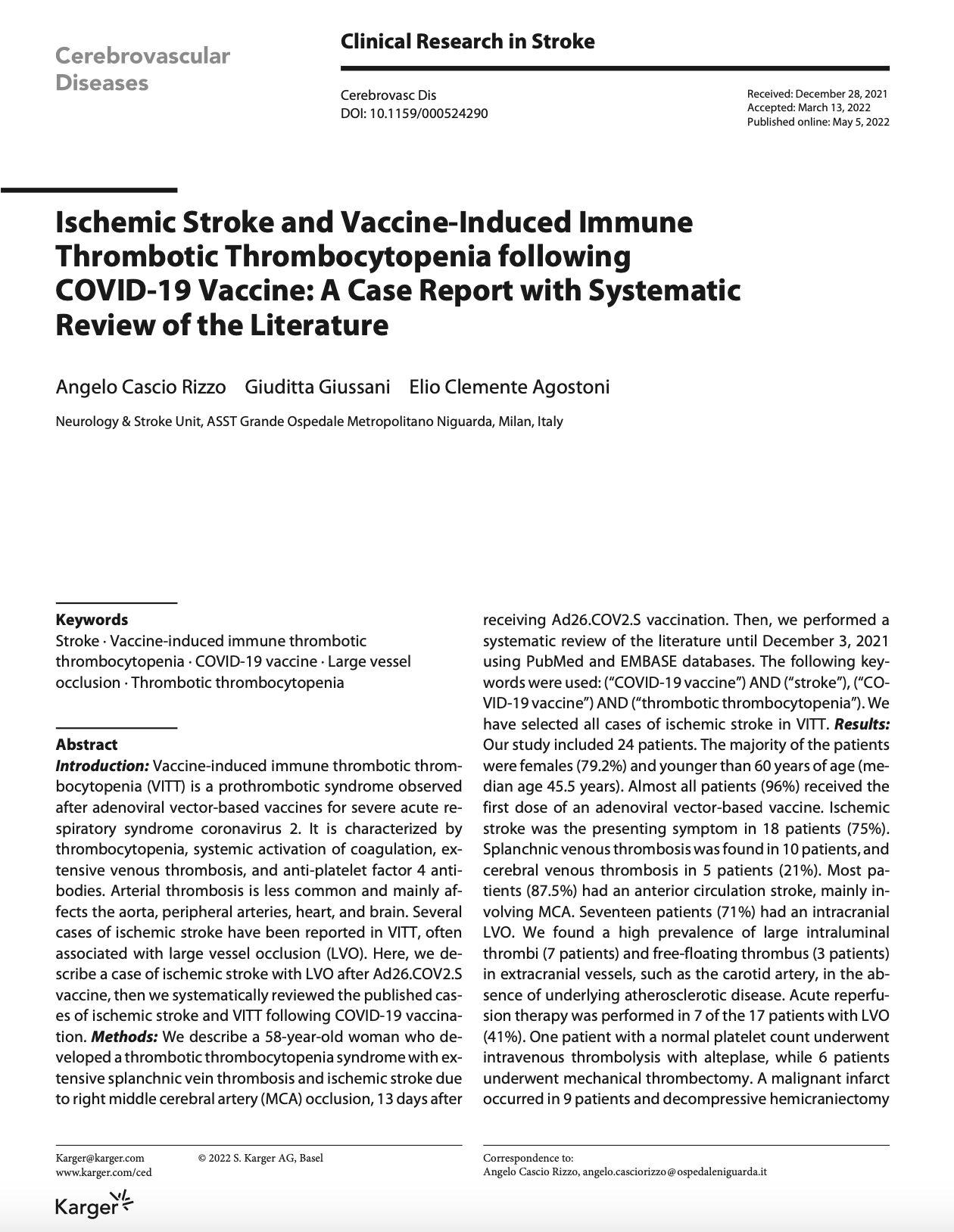
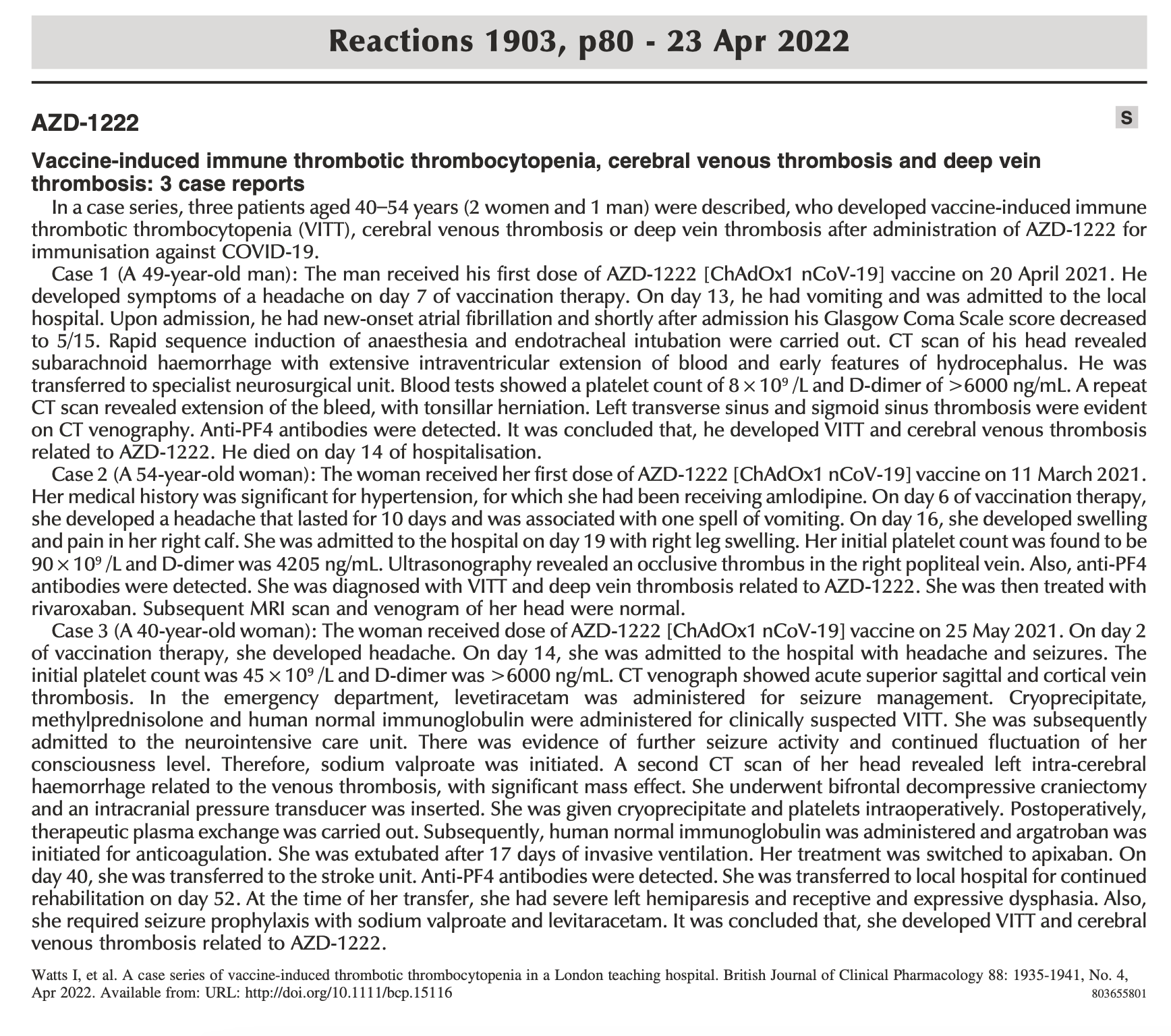
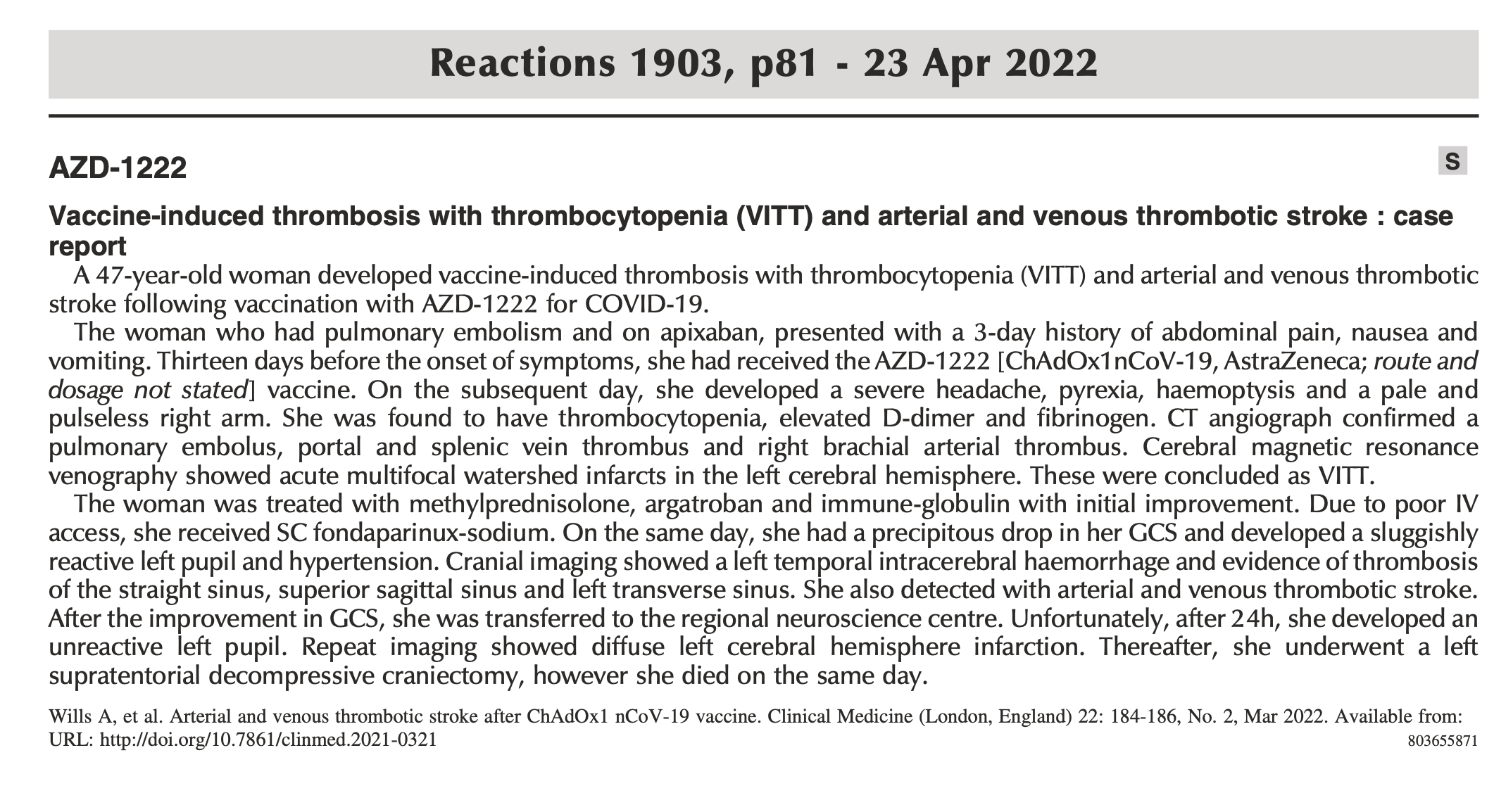
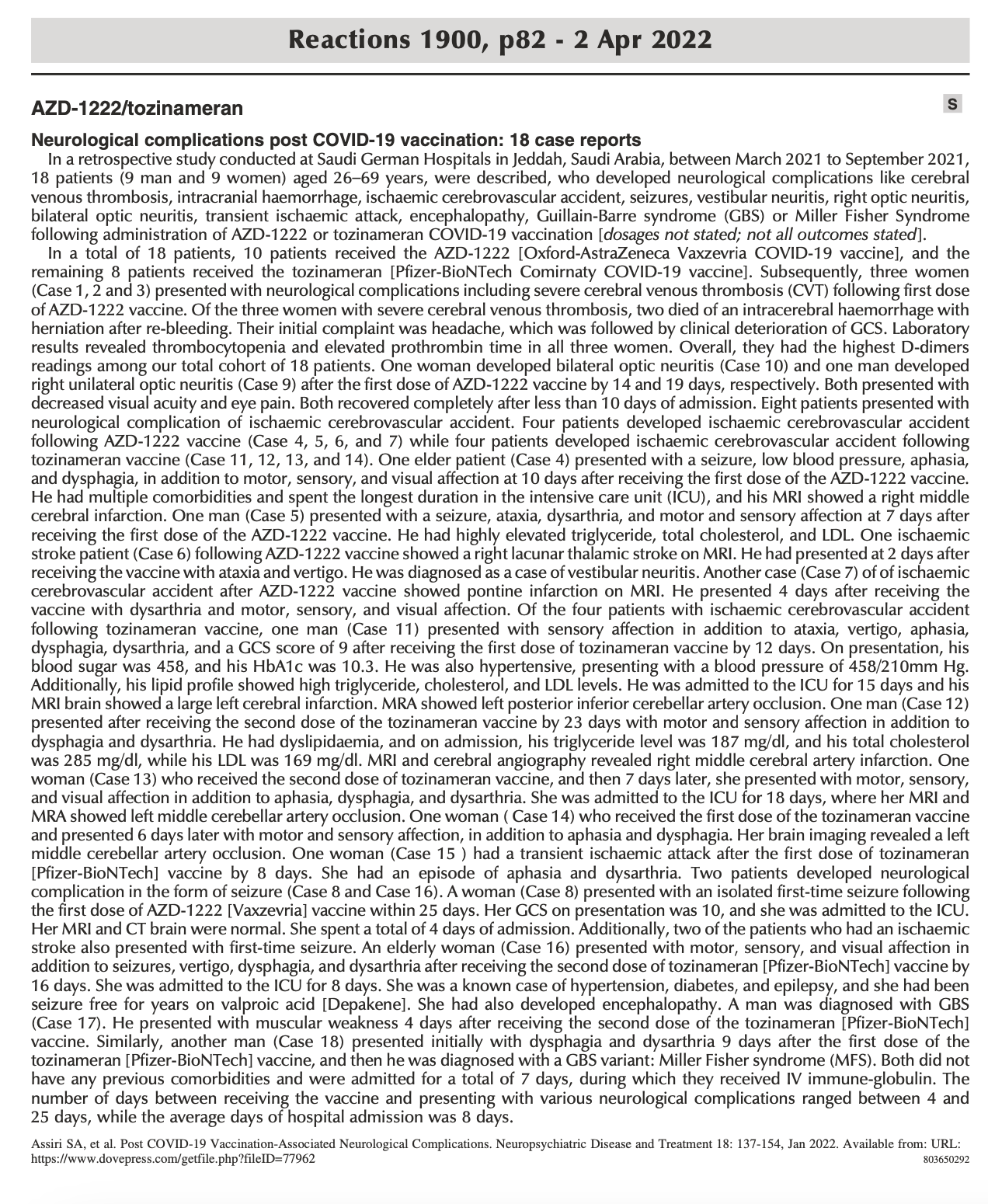
What Are We Seeing On The r/Stroke Subreddit?
In December of 2019, the subreddit r/stroke had 1,934 members with an average of 4 posts per day.
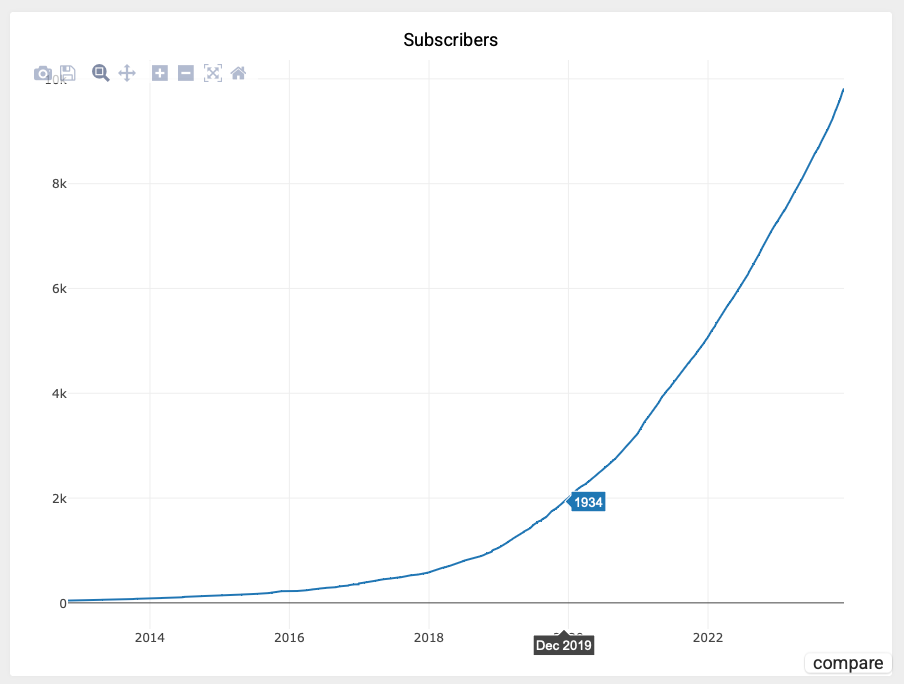
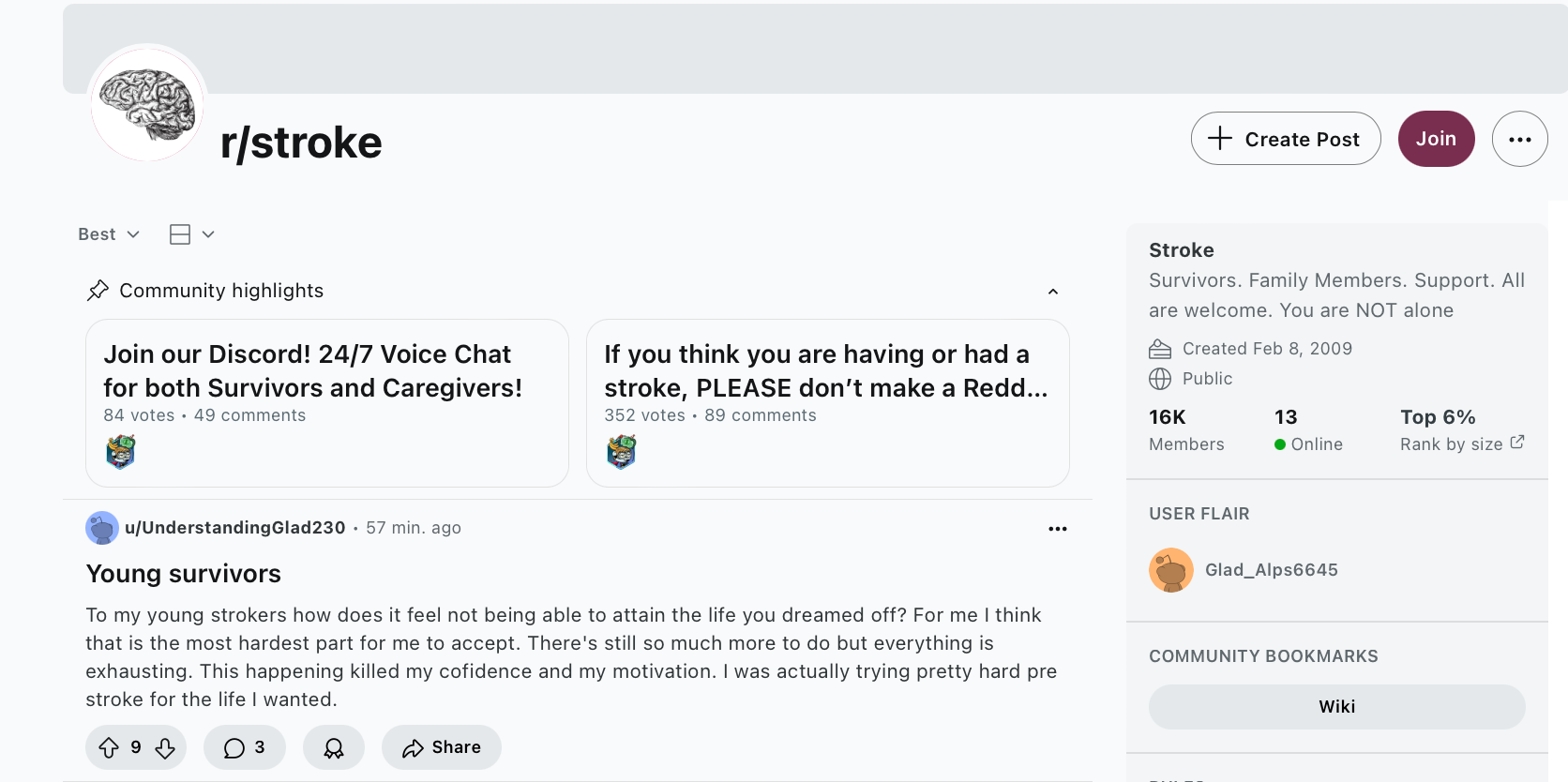
As of today, the sub has over 16,000 members (727.3% increase) and an average of 15 posts per day. The number of posts per day reached an all time high in August of 2022, with 120 posts (2,900% increase).
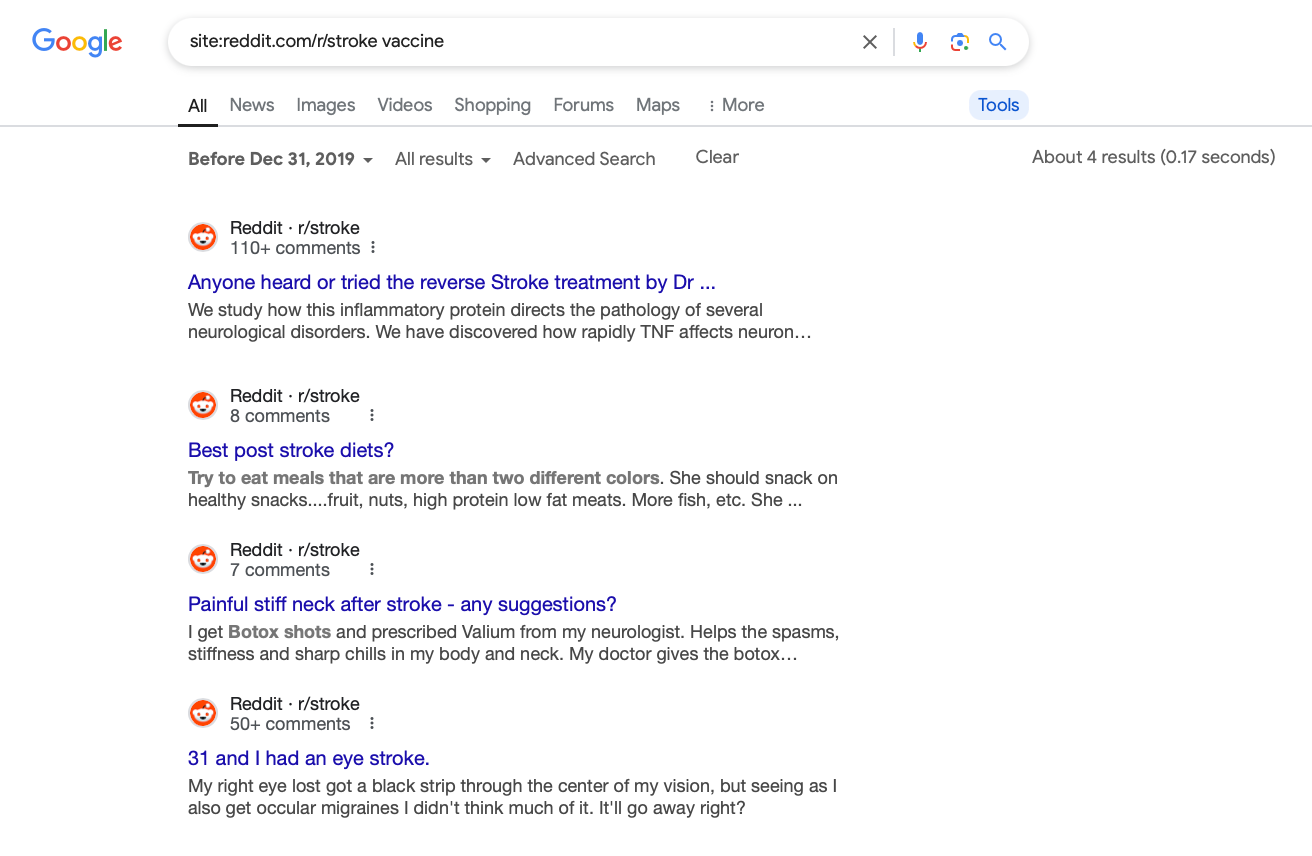
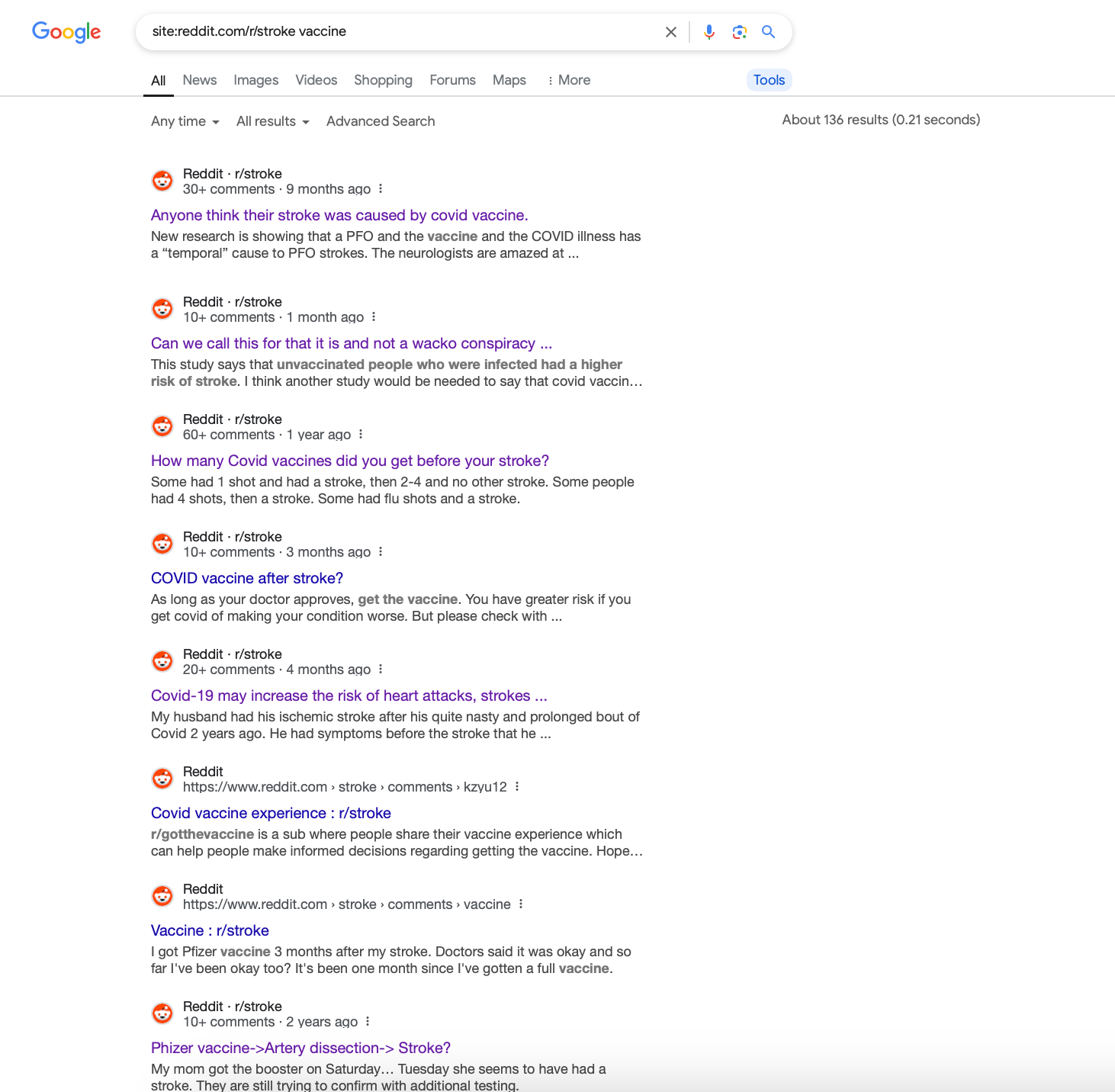
Before December 31, 2019, the subreddit had 4 posts that mentioned 'vaccine'. As of today there have been 136 posts mentioning 'vaccine' with over 1,000 comments (3,300% increase).
Be sure to read the post 100 Strokes Under 35 Years Old.


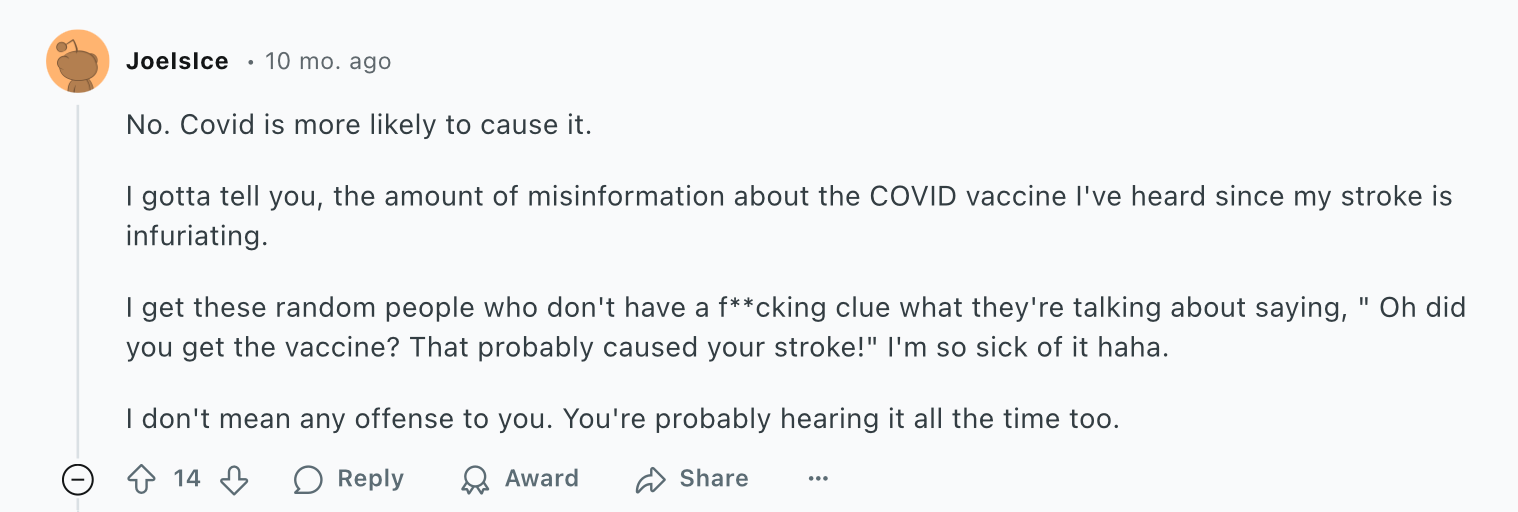
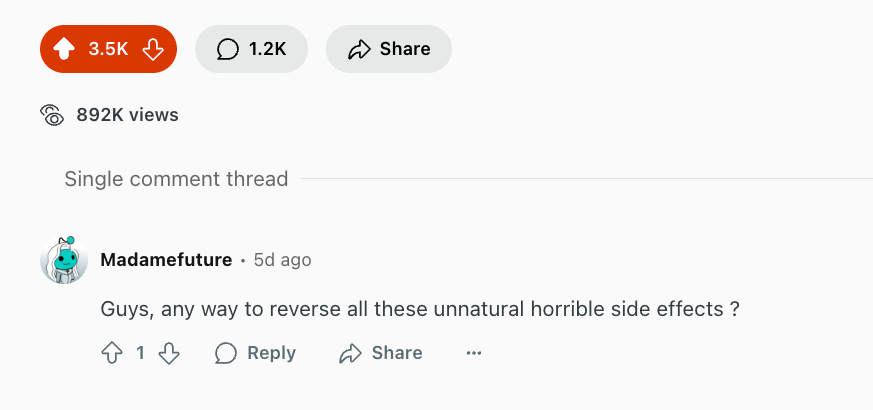
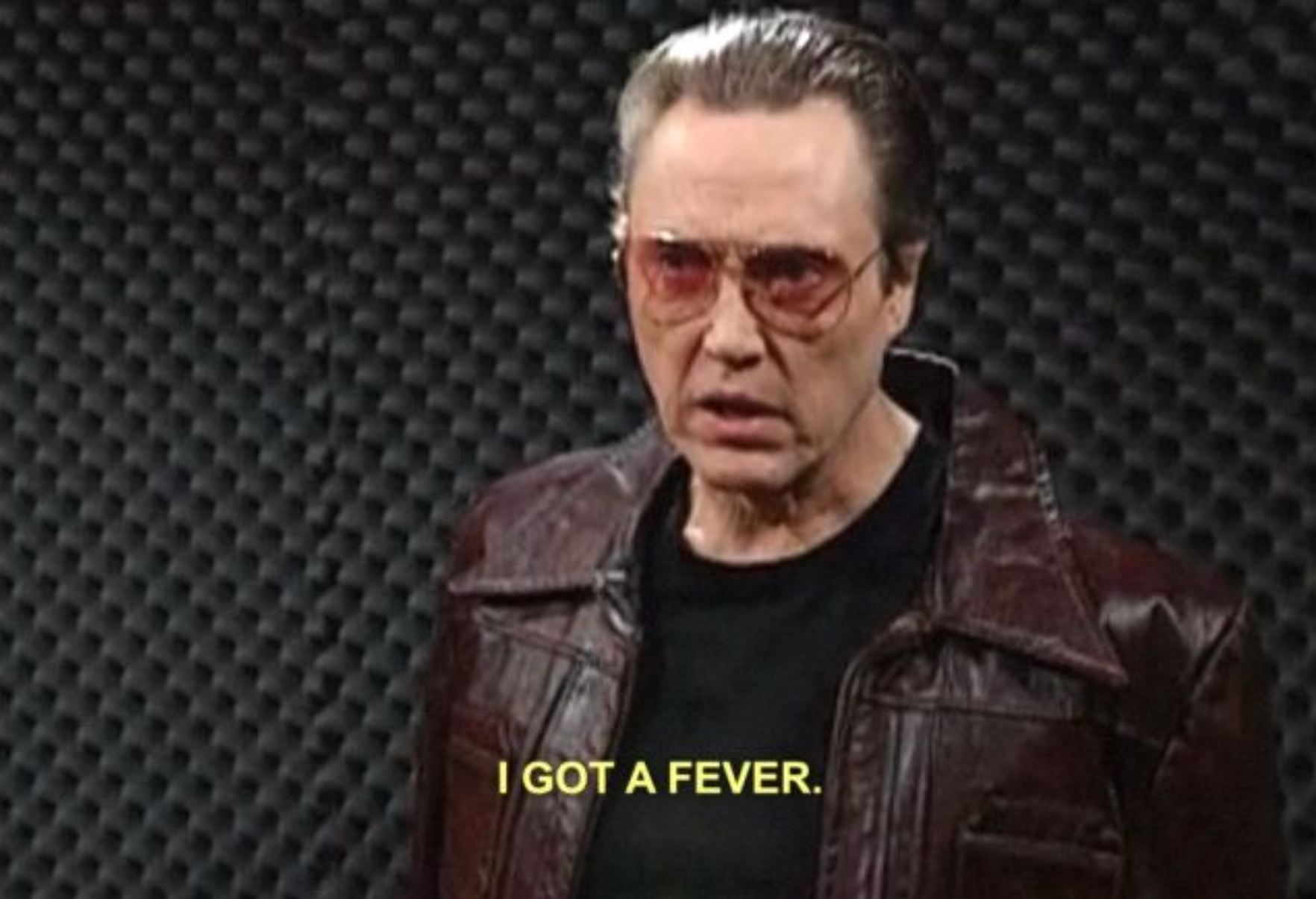

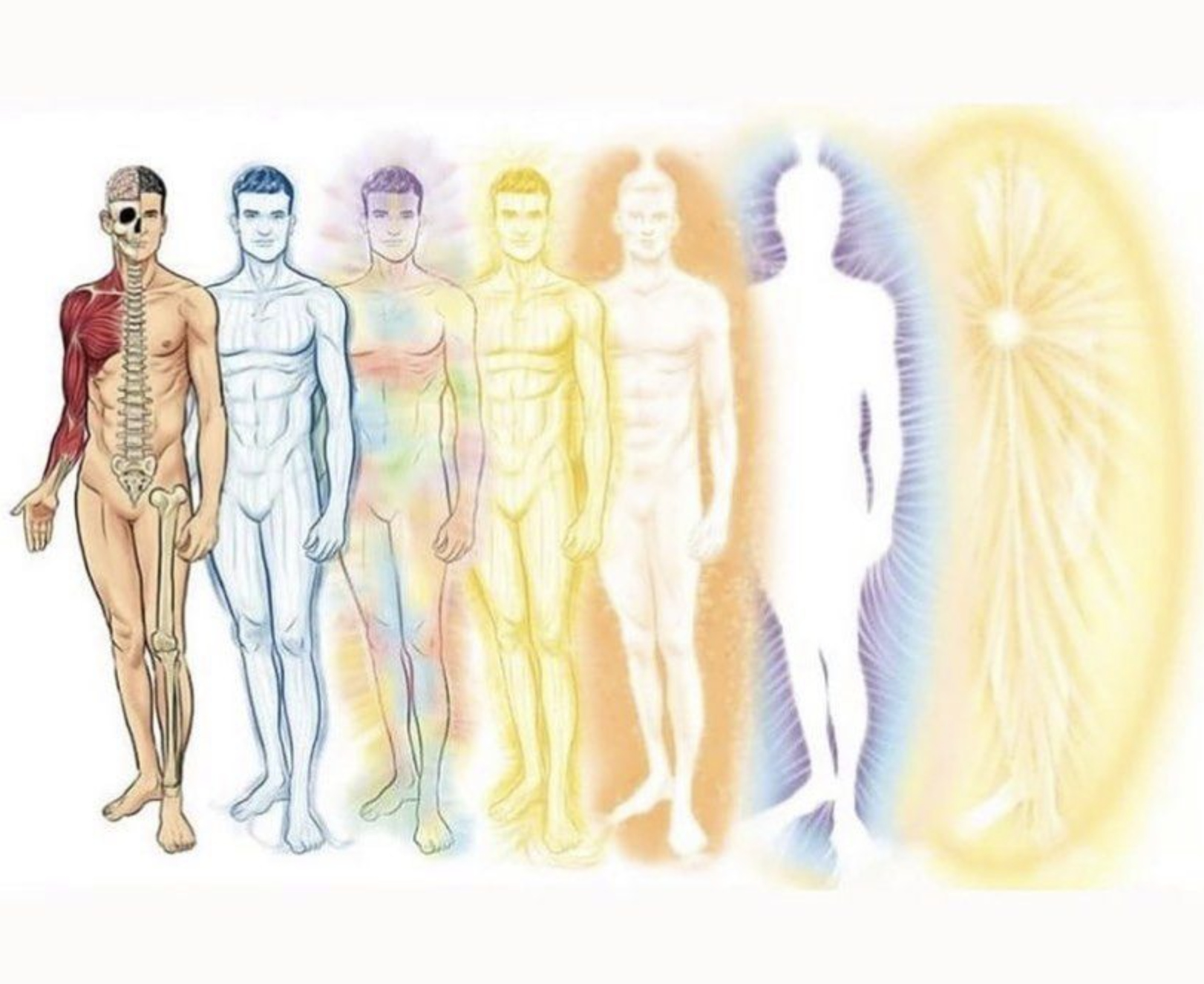
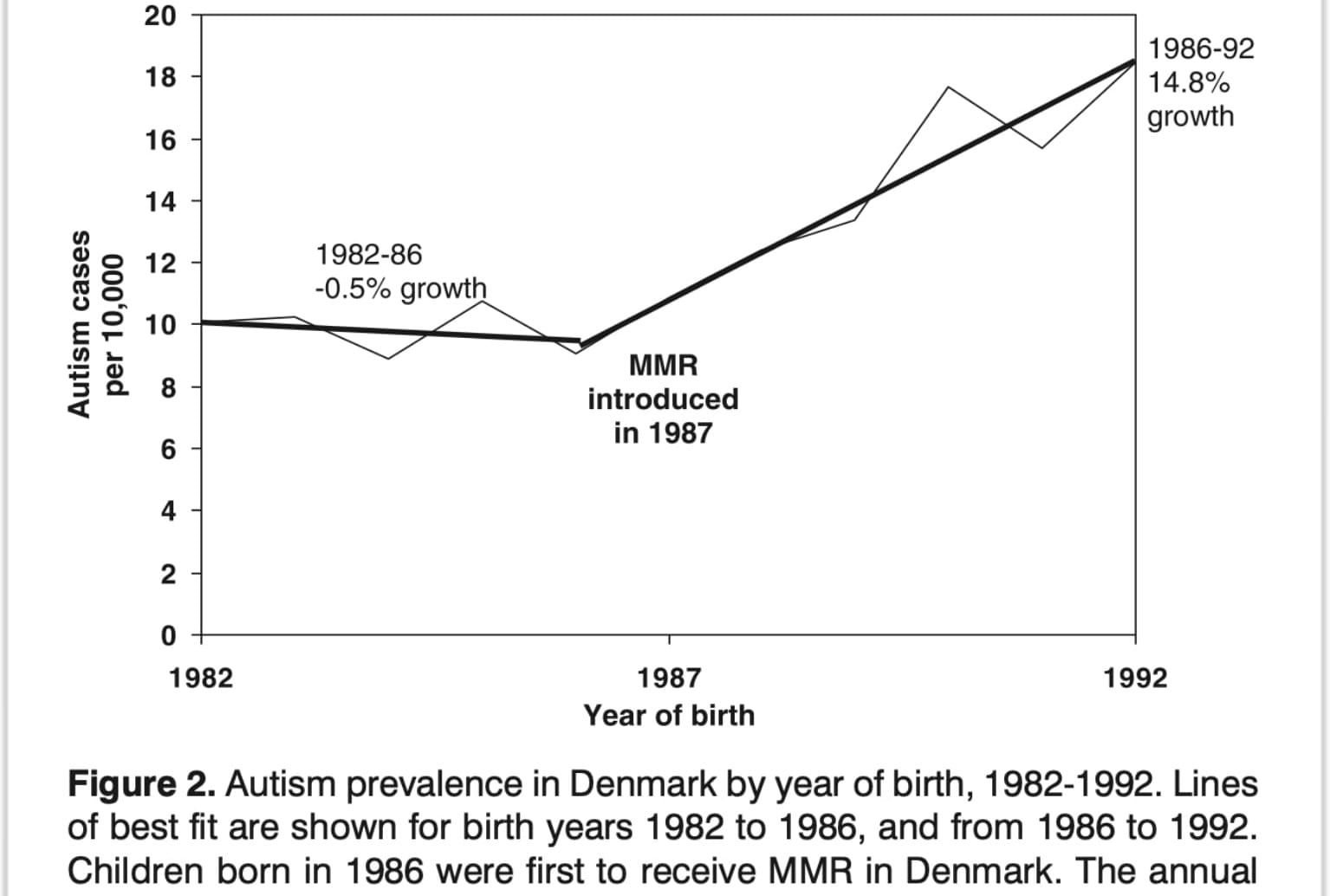
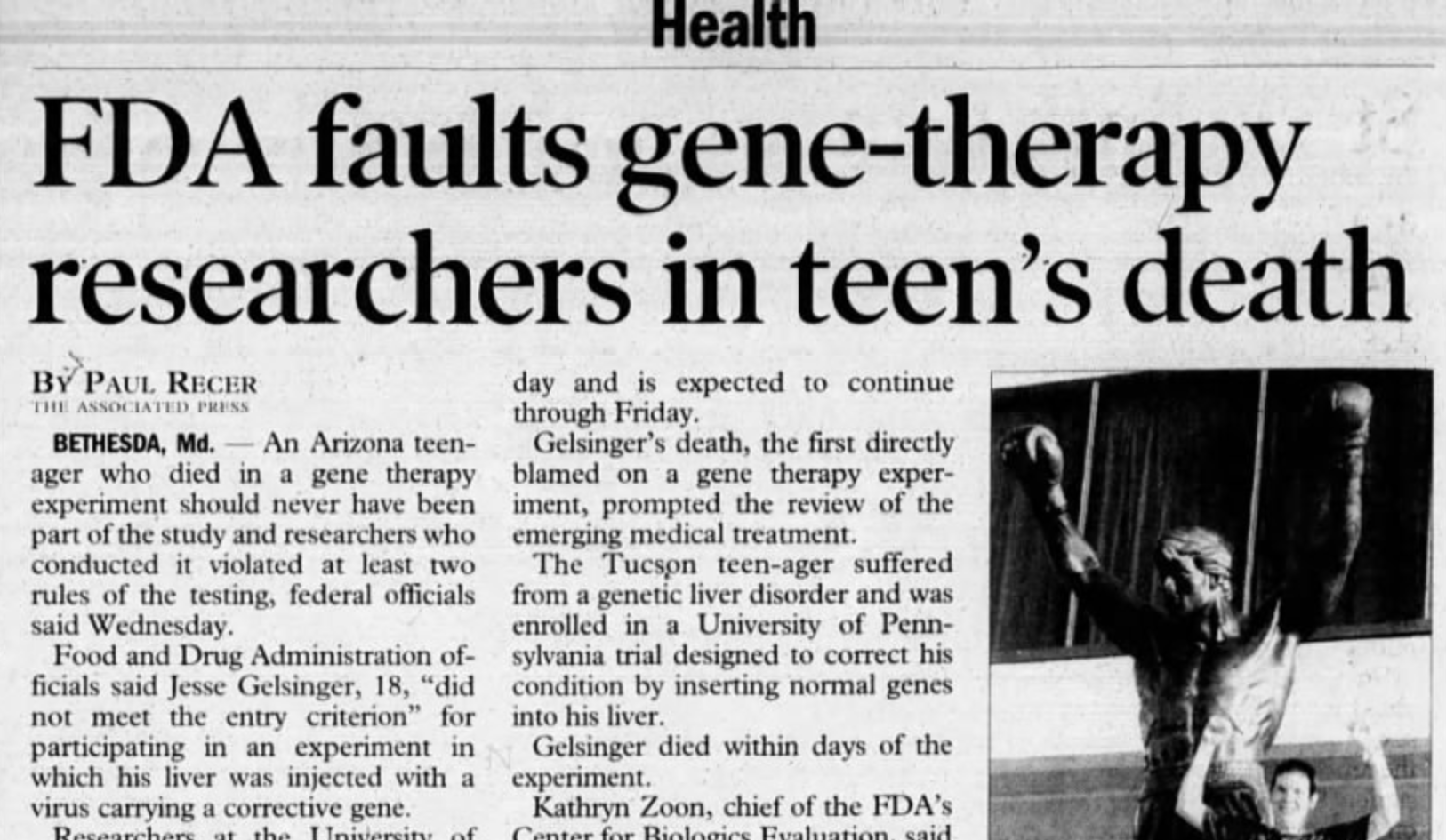
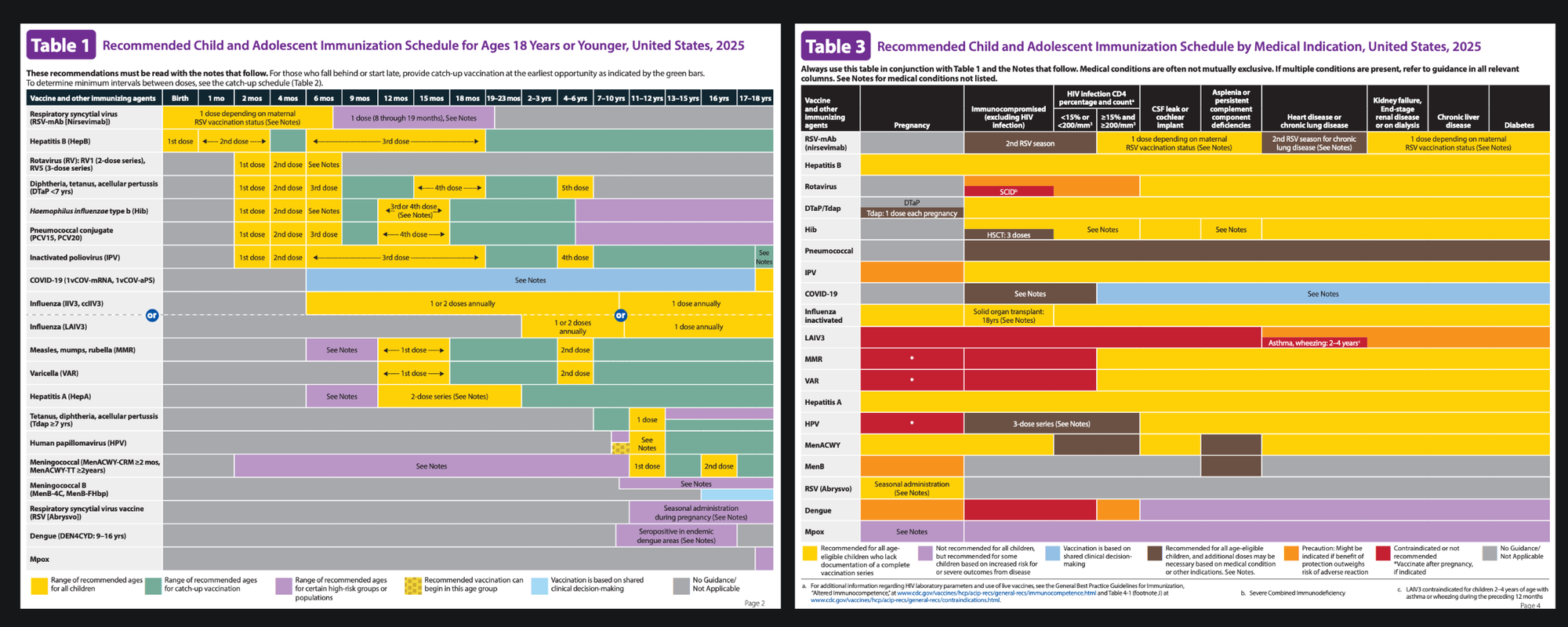
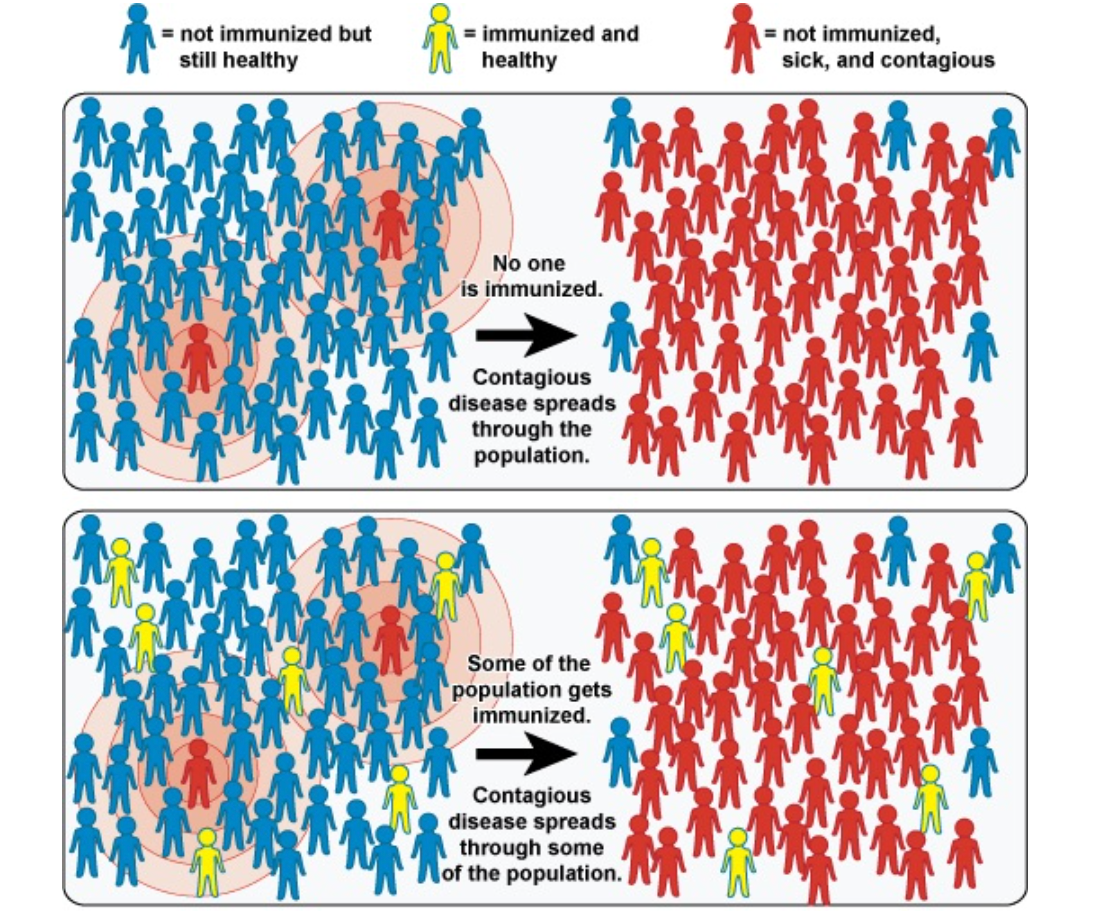
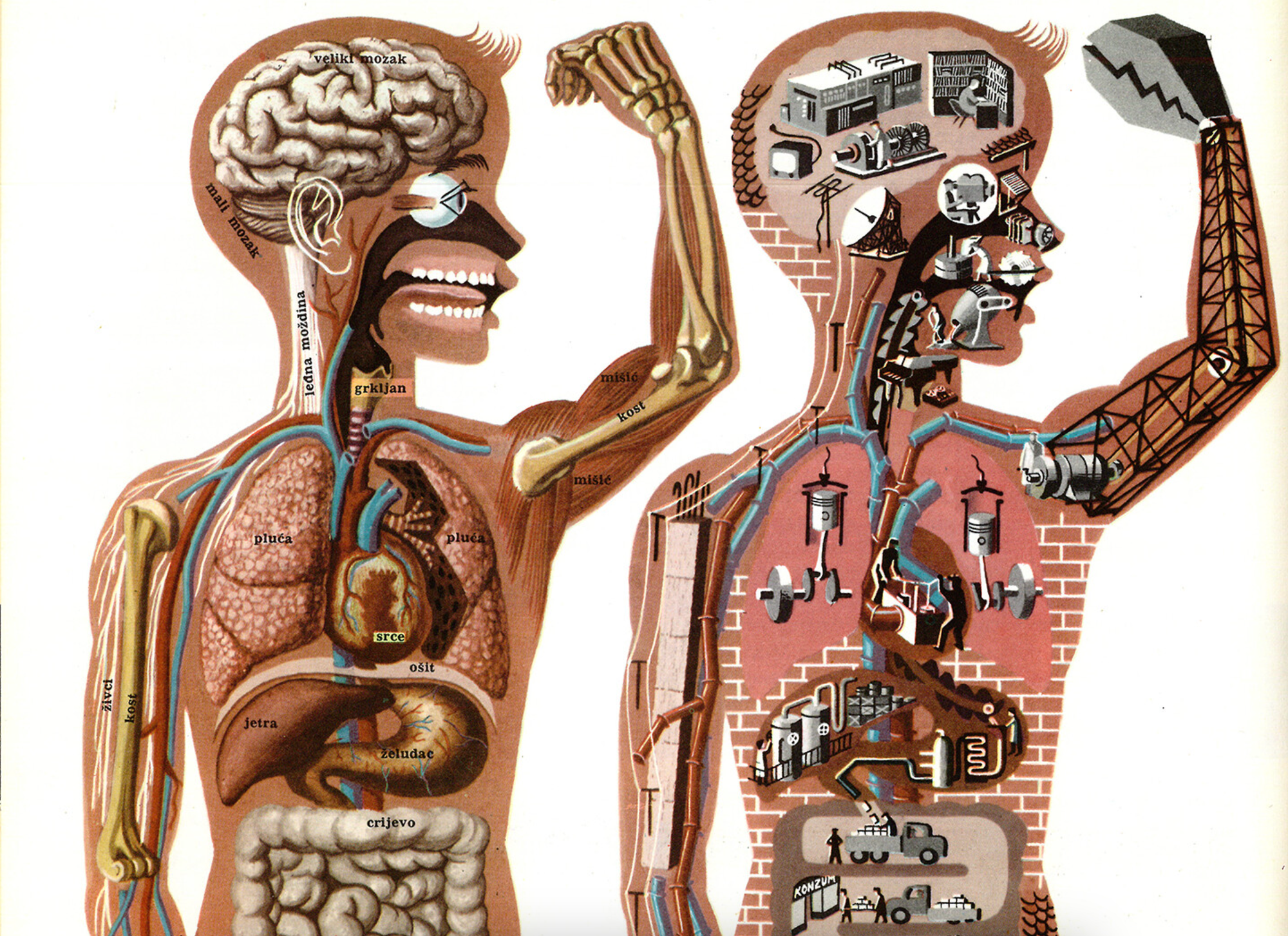

Discussion